- INTERCOAST
- Education
- Annual INTERCOAST Workshops
- 7th Annual IC Workshop - report
Report of the 7th Annual INTERCOAST Workshop
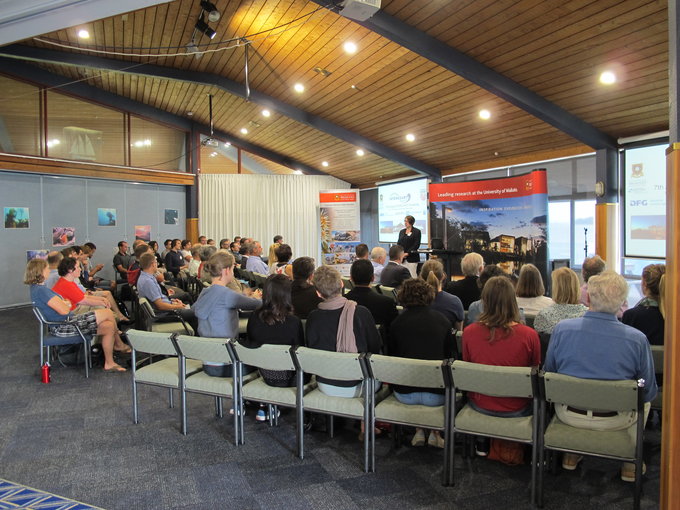
This annual INTERCOAST workshop provided a unique opportunity for all international PhD students, their respective supervisors, and Post-docs to gather and reflect on past and present research efforts.
As the first students of the new 3rd INTERCOAST PhD cohort (in total 12) started between November 2015 and February 2016, the workshop served as a kick-off workshop for them. All PhD students of the University of Bremen used this excellent opportunity to become acquainted with the New Zealand PhD students.
Moreover, the German-based PhD students became familiar with the resesearch projects and current findings from New Zealand students and vice versa.
Additionally, the new PhD students from the German side were able to meet with their New Zealand supervisors, and gained an insight in their future field sites. Last, but not least, they had the opportunity to develop networks with regard to their future research stay in New Zealand. For the principal investigators (PIs), the INTERCOAST Workshop provided a unique opportunity to remain updated with the entire INTERCOAST research project, and build new collaborations with the New Zealand partners.
The first day of the workshop took place at the TYPBC (Tauranga Yacht and Powerboat Club). The workshop was opened with a Maori welcome ceremony by Caine Taiapa (MTA), Prof. Chris Battershill (University of Waikato) and Prof. Katrin Huhn-Frehers (University of Bremen). Followed by speeches from Prof. Chris Battershill, Dr. Thomas Henzschel (German Embassy), Prof. Katrin Huhn-Frehers and Prof. Gerold Wefer (MARUM). Furthermore, keynote speeches from Prof. David Schiel (University of Canterbury), Prof. Conrad Pilditch (University of Waikato), Rob Donald (Bay of Plenty Regional Council) and Prof. Al Gillespie (University of Waikato). Additionally, Caine Taiapa gave an insight about the aims and objectives of the Maori organisation Manaaki Taha Moana: Enhancing Coastal Ecosystems for Iwi (MTM).
After a very successful and informative first day at the scenic Sulphur Point, the workshop continued at the venue University of Waikato Institute of Professional Learning in Tauranga.
The following days of the workshop from Tuesday, 16th February to Friday, 19th February were scheduled for presentations. All PhD students gave presentations about their respective research backgrounds and highlighted their research plans within the INTERCOAST program. Furthermore, all of the PhD students who started their PhD studies after the 4th Annual Workshop in 2013 informed about the current state of their research projects and presented future steps. Their supervisors used these presentations as a basis for fine-tuning the final research work of their PhD students.

Another highlight of the workshop was a short course on Matauranga given by Te Puea Dempsey and Waiaria Rameka (University of Waikato) who informed the participants about Maori culture and customs as well as the correct pronunciation of Maori words in order to facilitate conversation with Maori iwi.
Furthermore, Thesis Committee Meetings were an essential part of the workshop. All INTERCOAST PhD students organize these meetings semiannually during their entire PhD.
During these meetings, the PhD students used the opportunity to discuss their past and future progress directly with both their Bremen and Waikato supervisors. For the new 3rd cohort of INTERCOAST students, these meetings helped to prepare their research stays in New Zealand. This involves the introduction of the local research environment and conditions, and of the substantial research needs and expectations. Additionally, they were able to build up and expand a scientific network with experts and potential collaboration-partners by inviting them to these meetings.
The experienced PhD students used the Thesis Committee Meetings e.g. to discuss their findings and future steps or to fine-tune their work with regard to their thesis together with their supervisors.
Besides keeping one up-to-date between the respective projects, the project leaders used the workshop to discuss potential strategies of eventual follow projects in the future.
Valuable field trips complemented the scientific work during the 2nd week by allowing students to gain insights into the natural and cultural setting in which they will conduct their projects during their research stay in New Zealand. Destinations included field trips and visits at the Opotiki District Council, the Marae in Raukokore, and the University of Waikato in Hamilton to get an insight in the cultural setting and become acquainted with their field and research site.
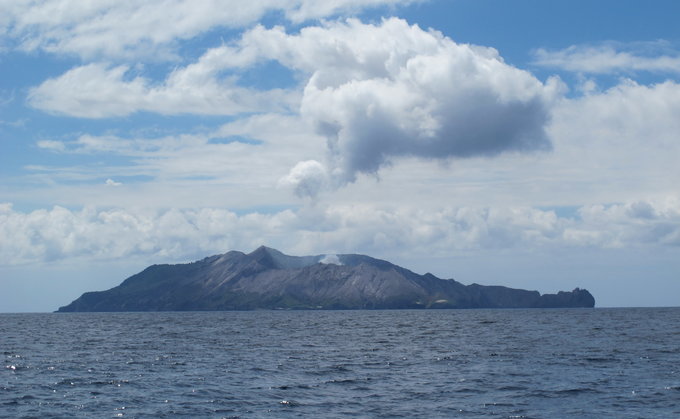
A particular highlight was the visit of White Island, which is an active marine volcano, (with the majority of the volcano sitting beyond the sea) located 50 km offshore in the Bay of Plenty. It was a unique experience for all participants to explore the steaming and sulfurous island. Experienced guides provided the group with geological and historical knowledge and the necessary safety equipment, i.e. helmet and even gasmasks, as sulphur fumes provoke intense coughing. During the tour, Intercoasters even had the chance to taste the sulfur- and mineral-rich ground water.
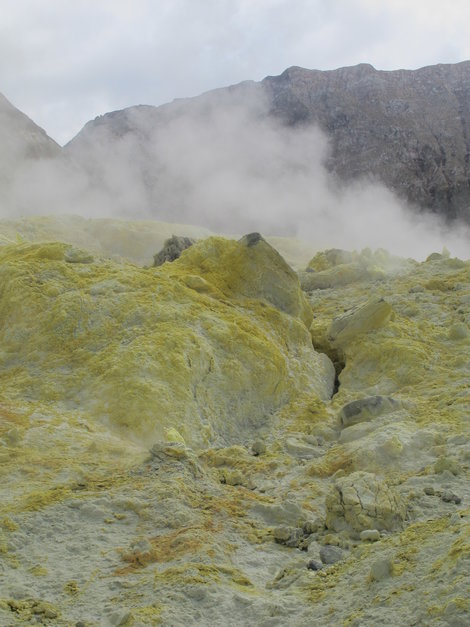
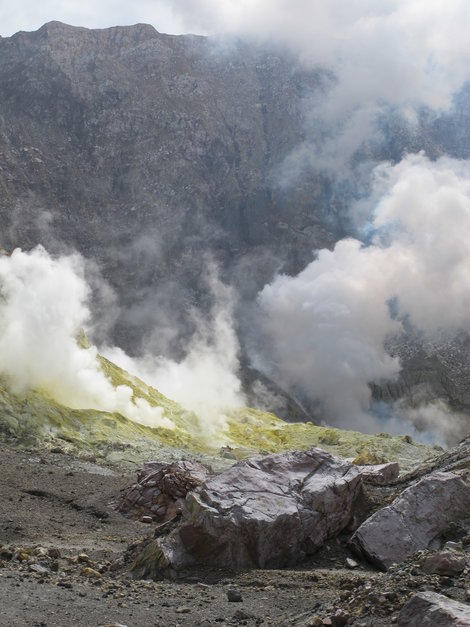
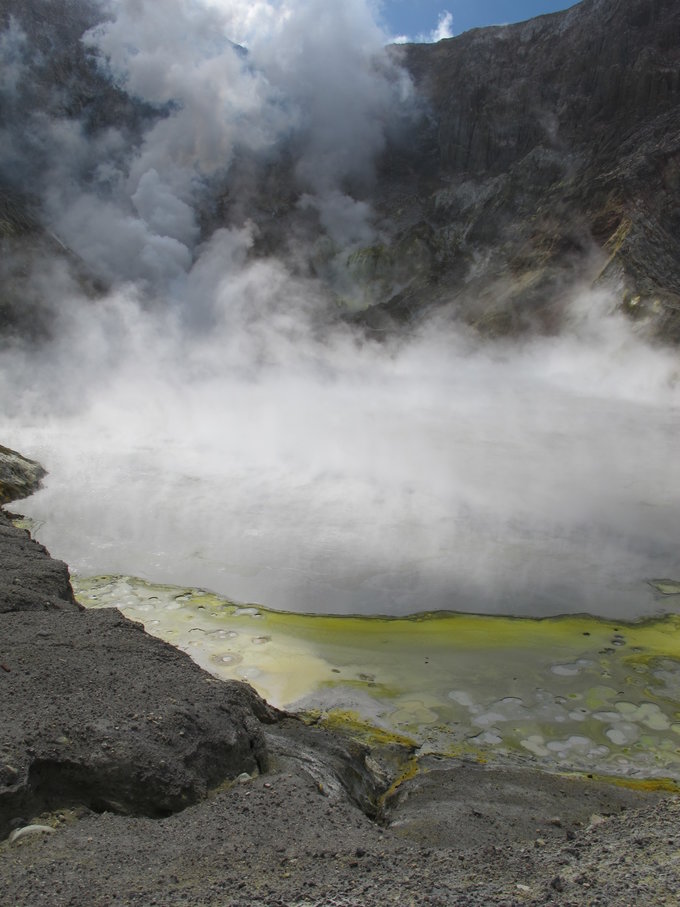
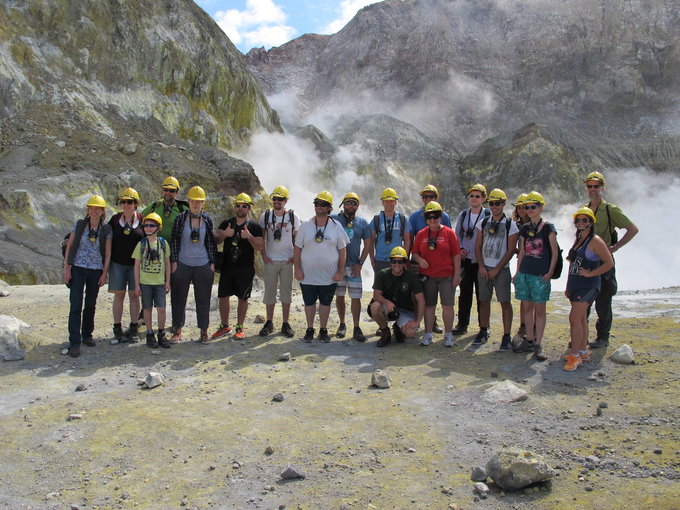
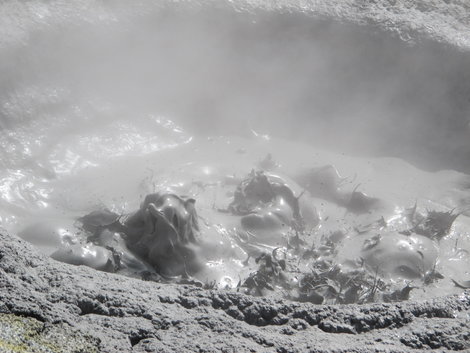
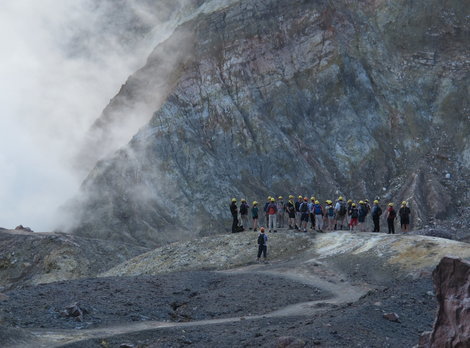
On Tuesday, 26th February the group visited the District Council in Opotiki to meet with the mayor, John Forbes, who informed us about the current planning phase regarding the extension of the local harbour. In preparation to the visit, the PhD students worked on a project in order familiarize themselves with the topic of the Opotiki Harbour Project http://www.odc.govt.nz/our-council/current-projects/harbour-development/, to work on a presentation in an interdisciplinary context, and to present the findings (suggestions and concerns regarding the future building measures) to the District Council. Afterwards, there was a time slot for intense networking and in-depth discussions before the group left for the Raukokore Marae.
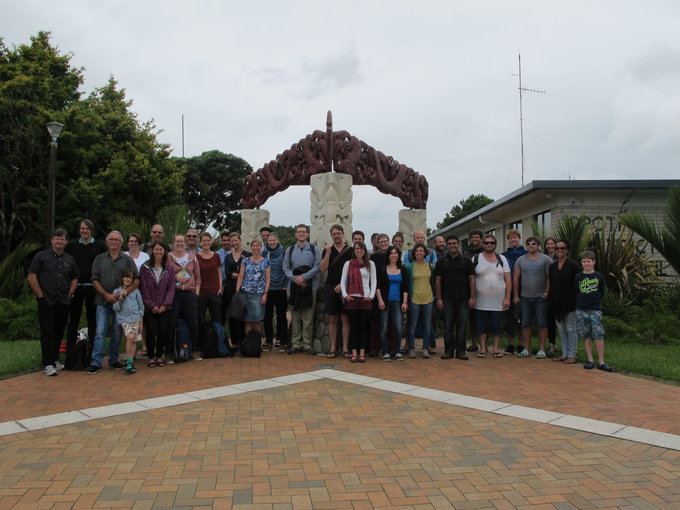
In summary: the workshop was a successful and profitable event for all participants as it provided a unique opportunity for all International PhD students, their respective supervisors, and post-docs from the German and New Zealand side. During the workshop, all participants were able to gather and reflect on past and present research efforts and to develop new research strategies in the framework of the INTERCOAST International research training group.
Everyone gained new experiences and strengthened their collaborations for ongoing or future projects, and every workshop participant is highly grateful for this unique opportunity.
Many thanks to all organizers, assistants and volunteers as well as to all organizations, which contributed to the success of the 7th Annual INTERCOAST Workshop.


